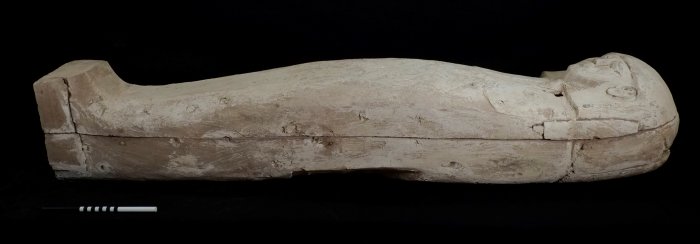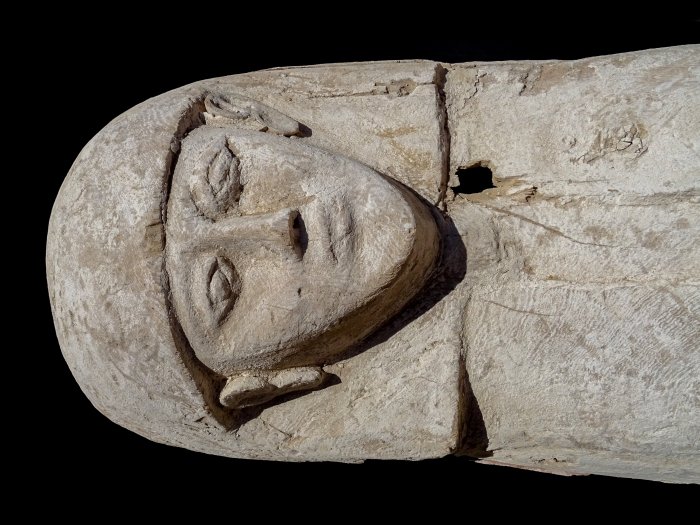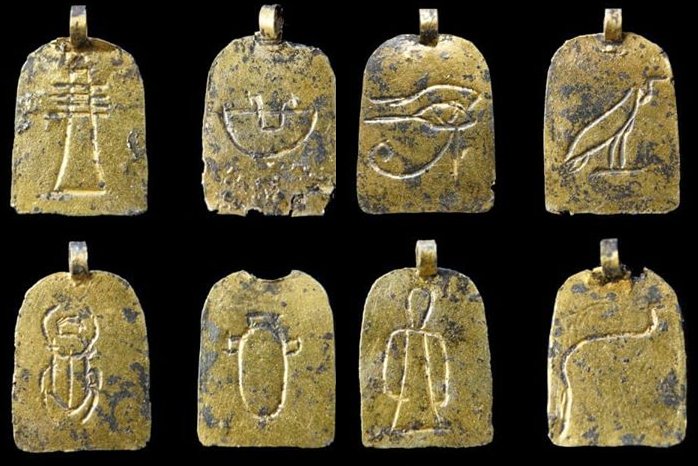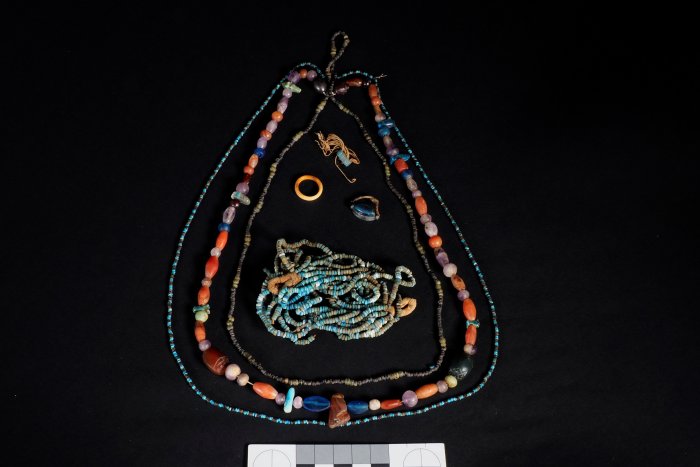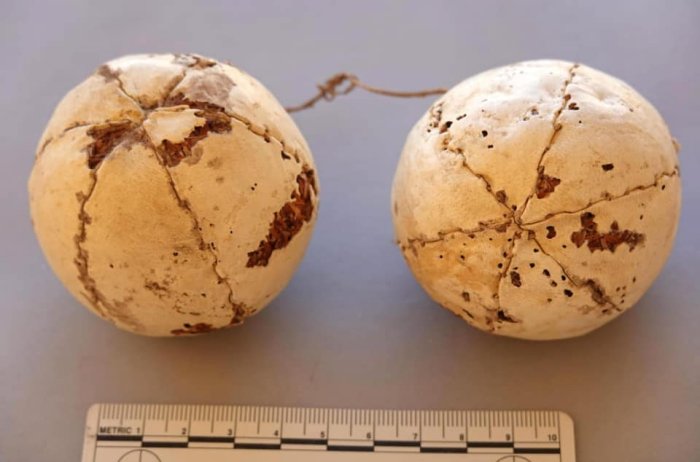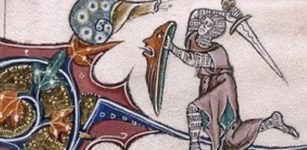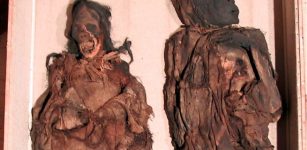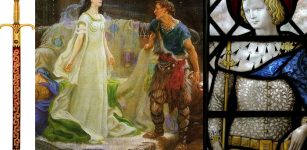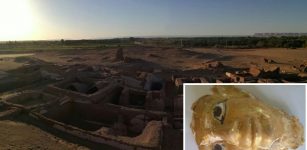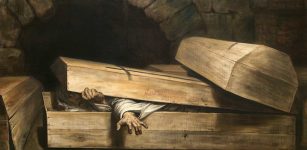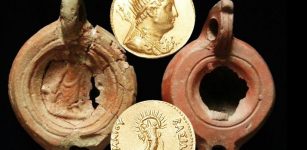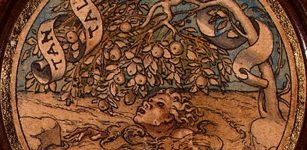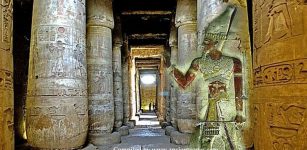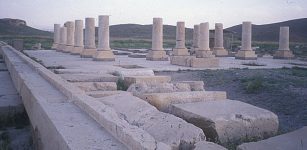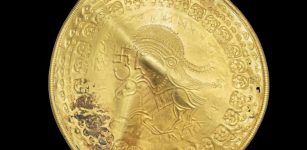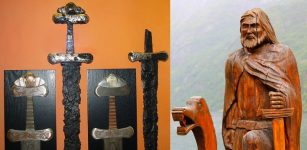Beautiful Necklaces And Amulets Discovered In Ancient Egyptian Tomb
Jan Bartek - Ancient Pages.com - Earlier this year, archaeologists excavated in Luxor, Egypt where they uncovered a small wooden coffin belonging to a woman who was about 15-year-old when she died. The young lady was put to rest about 3,600 years ago.
Credit: Proyecto Djehuty - José Manuel Galán
When scientists opened her coffin, they found beautiful ancient Egyptian jewelry and unique amulets. It was surprising to see that a person so young had been placed in a rather modest coffin and yet surrounded by such treasures.
The woman’s body was in poor condition, but after performing an x-ray of the mummy archaeologists discovered that the woman wore two earrings in one of her ears and two rings, one on each hand.
Credit: Proyecto Djehuty - José Manuel Galán
According to Egypt’s Ministry of Tourism and Antiquities, scientists found 4 necklaces tied to each other with a ceramic grille on the mummy's chest; the initial pendant is 70 cm long, consisting of circular, decorative dark and light blue beads.
Credit: Egypt’s Ministry of Tourism and Antiquities
One pendant is 62 cm long and made of green glass beads. Another pendant is 61 cm long and is made of dozens of pieces that combine the grains and balls, amber, blue glass and quartz. The fourth necklace consists of several chains of glass beads that are linked to each other with a ring that combines all the threads.
Credit: Proyecto Djehuty - José Manuel Galán
According to José Manuel Galán, a researcher at the CSIC at the Institute of Languages and Cultures of the Mediterranean and the Near East and coordinator of the Djehuty Project, this ancient treasure "is made up of 74 pieces of different shapes carved in amethyst, carnelian and other semi-precious stones that have not yet been identified, in addition to glass, and seven faience amulets. An amber falcon, representing the god Horus, appears to have been the central figure, flanked by two scarabs (Egyptian amulets shaped like a dung beetle)."
Credit: Proyecto Djehuty - José Manuel Galán
Scarab is one of the oldest and widely used symbols of the ancient Egyptians. Egyptian pharaohs worshipped dung beetles and most probably it was symbolically as sacred to the Egyptians as the cross is to Christians.
The scarabs with aesthetic qualities and shamanic symbolism were already known in the Old Kingdom (3rd millennium BC) and played an important role in the early worship of animals. It is supported by archaeological evidence discovered in graves during the time of King Den of Dynasty I.
Credit: Egypt’s Ministry of Tourism and Antiquities
Archaeologists also found mummified a couple of cats that were well preserved. It is assumed these animals belonged to the young woman.
See also: More Archaeology News
In the same necropolis, archaeologists also found a small clay coffin. It wasn't more than just 22 centimeters long and 15 centimeters wide, but it was in good condition. To keep it closed a knotted rope was wrapped around the small coffin. The tiny coffin contained a small wooden figurine. The Ushabti was wrapped in four linen bandages tied around the neck and ankles. Examination of the fabrics revealed a horizontal inscription, in hieratic script with black ink and cursive writing, which identifies the owner as “The Osiris, Djehuty”.
Written by Jan Bartek - AncientPages.com Staff Writer

